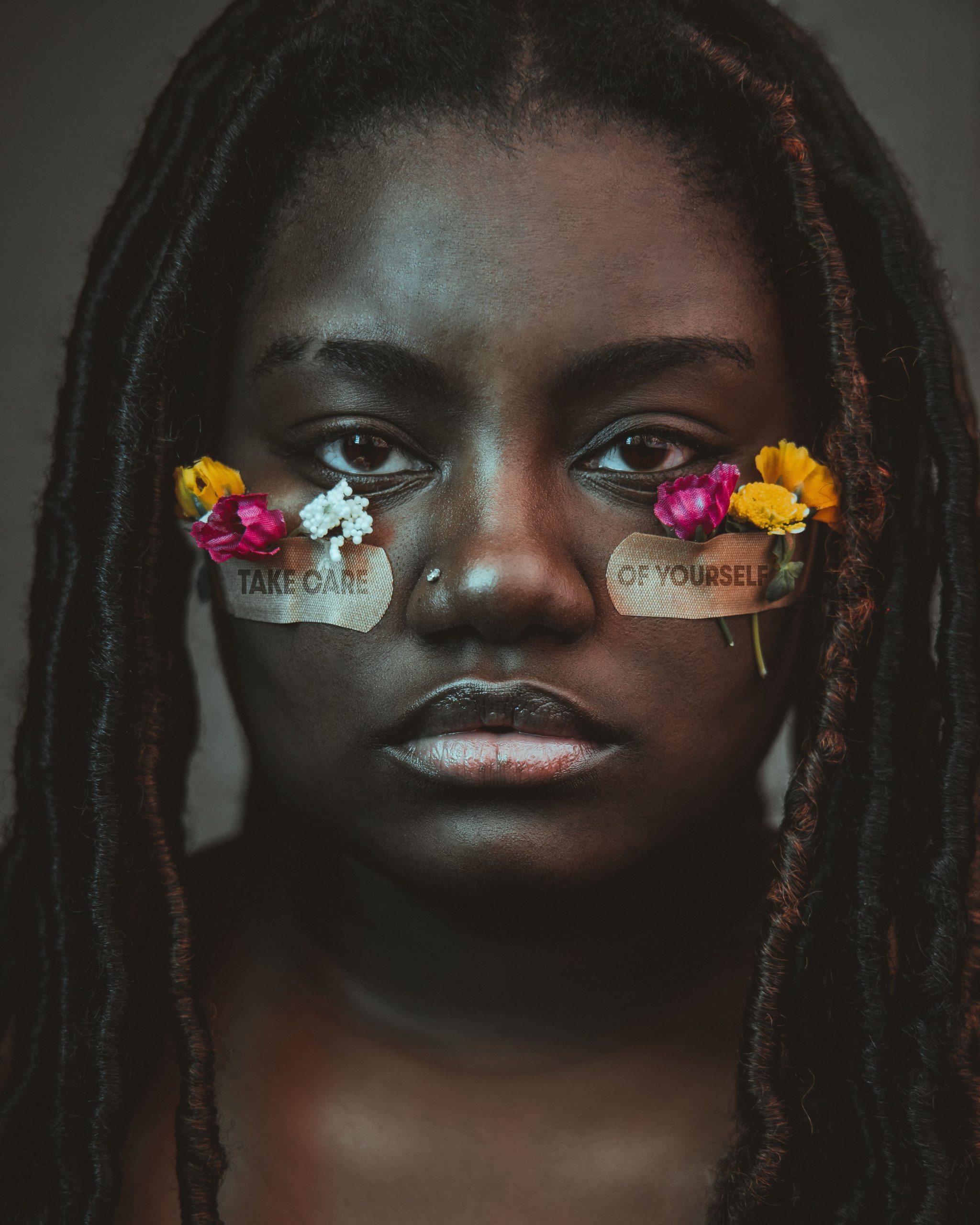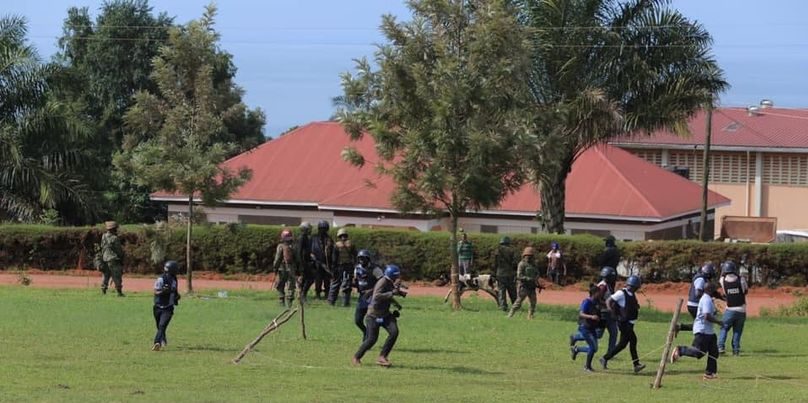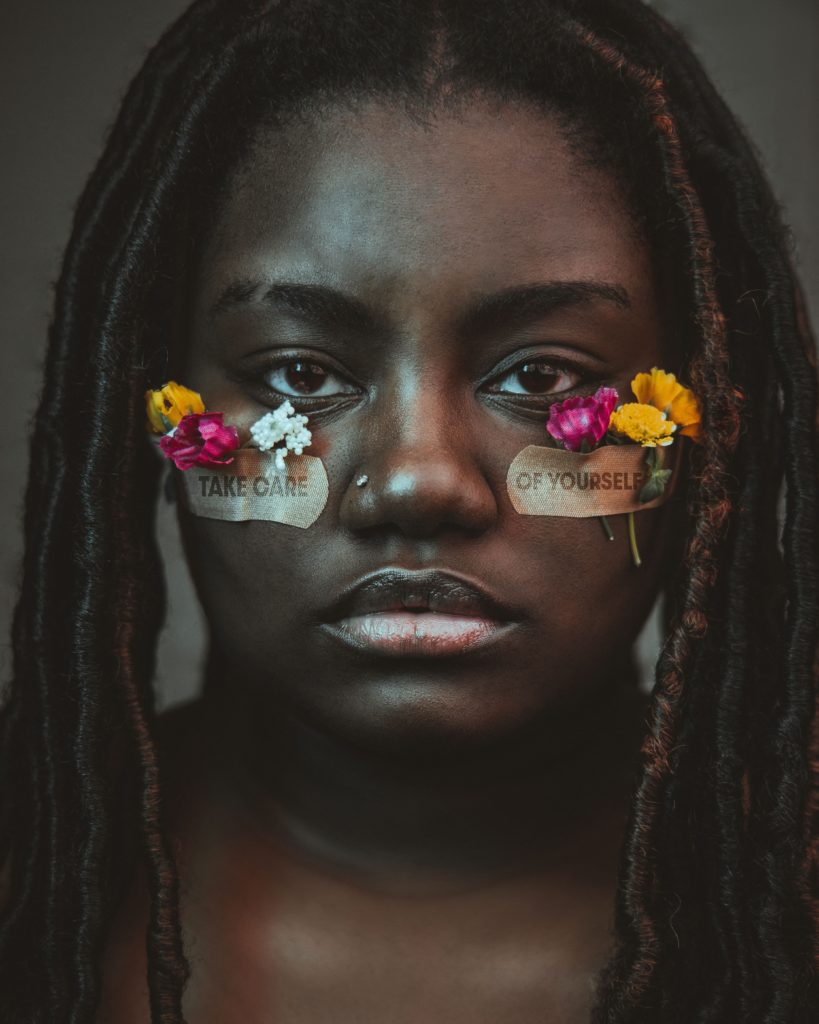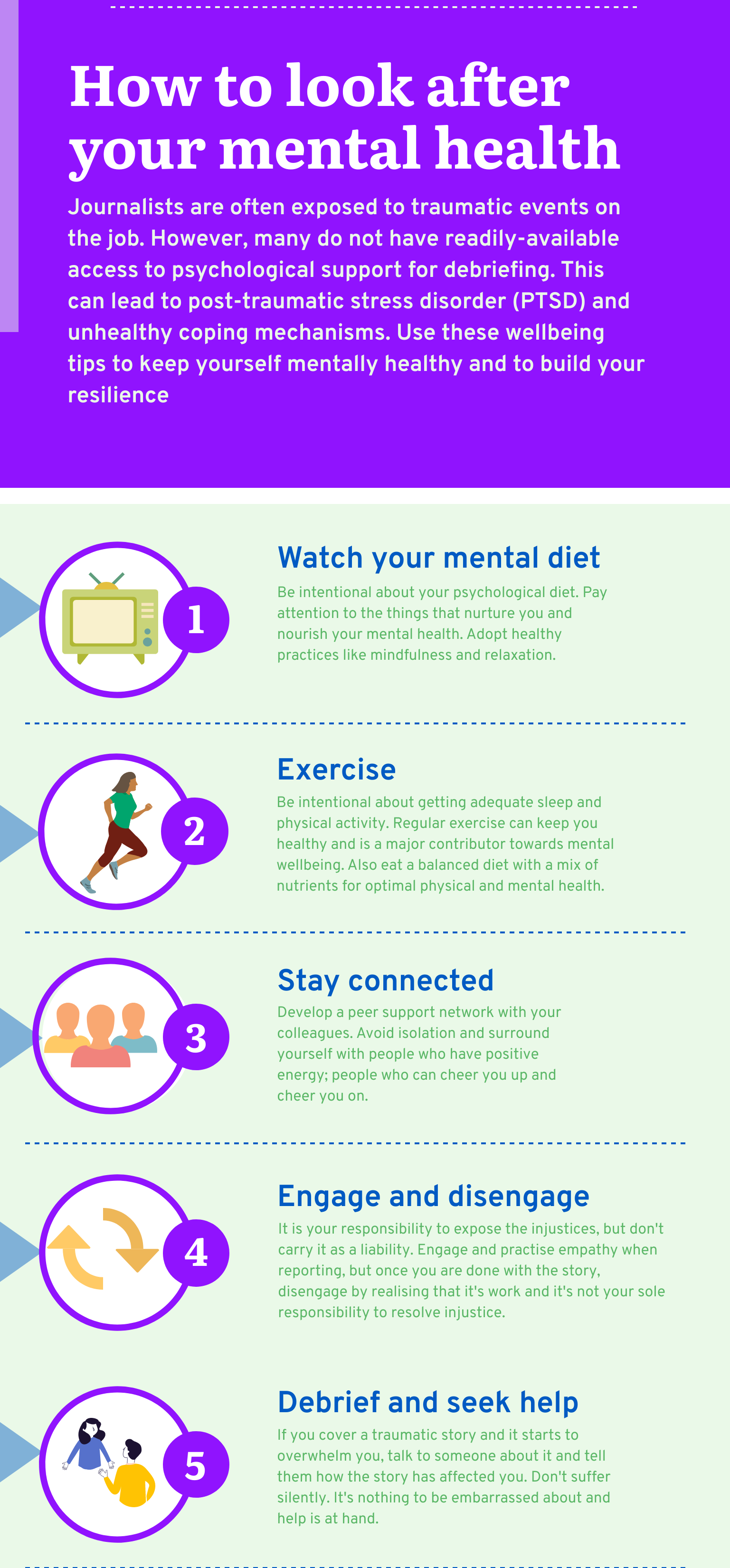Groundbreaking Workshop on AI and Technology-Facilitated Gender-Based Violence at AWiM24
Trending
Monday May 26, 2025
Trending

Nelly Ating has been documenting the plight of child victims of Boko Haram, in the norther part of Nigeria. Ating, a photojournalist, focuses on the trauma inflicted on the children by the militia.
While telling the stories of children caught up in the crosshairs of conflict is Ating’s driving force, she told AWiM News that her work has led to sleep disturbances.
“I get flashbacks that get in the way of a good night’s sleep,” she said.
Kilometres and countries away in Kenya, Sarafina Robi, a news anchor at the Kenya Broadcasting Corporation, has also covered conflict and terror attacks that left an indelible mark. However, the story that left her psychologically wounded, was not one of terrorism, but one of a shelter for teenage girls who have suffered sexual violence; some were raped by their own relatives. While producing Wing of Compassion in 2016, Robi spent hours listening to more than 20 girls open up about their ordeals, for a six-minute television feature.
“When I set out to cover the story, I didn’t think it would have an effect on me because I have covered sad stories in the past. However, listening to the girls narrate their stories again, and relive the graphic details got to me,” said Robi.
“The first sign that something had shifted was withdrawal. I withdrew from everybody. I didn’t stop working, but I knew something had changed. The girls’ experiences played back in my mind. I knew I had to ask for counselling support from the office,” she said, adding that luckily, her employer – the Kenya Broadcasting Corporation – has a counselling department.

In the course of their work, journalists witness traumatic events such as disasters, human suffering, injustice and violence, either directly or indirectly. For many, exposure to stress and psychological trauma is an occupational hazard, a burden whose effects they often have to carry alone. Trauma is that reaction to a deeply disturbing event, that leaves a person feeling overwhelmed, unable to cope or helpless. The effects of trauma can be long-term, leading to post-traumatic stress disorder (PTSD), which is characterised by failure to recover after experiencing or witnessing a traumatic event.
Titi Tade, a trained clinical psychologist and practising medical social worker, told AWiM News that PTSD symptoms can occur within a month of trauma or even several years after the event. Some symptoms of PTSD are: flashbacks or reliving the events, negative changes in mood, withdrawal and isolation, sleep disturbances and irritability. In some cases, people experiencing trauma might turn to excessive drinking and other substance abuse to cope.
“These symptoms affect a person’s significant relationships and interfere with their general ability to function in everyday life,” she said, adding that without professional attention, PTSD could last months or years, with triggers bringing up traumatic memories accompanied by intense emotional and physical reactions.
Studies, such as one by PTSD Relief Now, which runs a project to reduce the prevalence of PTSD in Africa, and another by the Department of Veteran Affairs in the US, have found that women are twice as likely to develop PTSD as men. They are also “more likely to experience longer durations of symptoms and display more sensitivity to stimuli that remind them of the trauma.”
Women journalists covering stories on conflict, sexual and gender-based violence, including female genital mutilation (FGM), human trafficking, and even the COVID-19 pandemic, commonly suffer trauma in the course of their work.
For some like Robi, there is employer-sponsored assistance at hand to help them process the trauma through much-needed debriefing and psychological support. However, for others like Veronica Dan Ikpoyi, a Nigerian journalist who reported on female genital mutilation for TVC News, support is not readily available
Ikpoyi travelled to Oyo State in south-west Nigeria documenting the cultural significance of FGM and its effects. Her feature earned her a place on the list of finalists for the CNN Africa Multichoice Journalist of the Year in 2016, but it left her with invisible scars.
“When I returned from Oyo State with my story, there was no psychological debriefing or evaluation. Media organisations overlook this when they send journalists out to cover stories, yet psychological support should be part of the news production process,” she told AWiM News.
“Worse still, even when the trauma happens in the media organisation itself, there is no psychological support. While offering journalists support to keep them from succumbing to the psychological toll of traumatic stories is a first step, it goes beyond what happens when reporting. Journalists also go through other traumatic life experiences in and out of work, and they need support for that too if the media is to get the best out of them,’ said Ikpoyi, adding that regular debriefing should be part of work culture in media organisations.
Tade, the medical social worker, says that while mental health disorders have been highlighted in the news as a major cause for concern during the COVID-19 pandemic, not many people are paying attention to the mental health of journalists – the messengers raising the alarm. Tade adds that while the higher level of awareness means that people are beginning to understand that good mental and psychological health is essential to overall wellbeing, many Africans, including journalists, are reluctant to seek healthcare to address mental or psychological disorders.
“Many people don’t even realise that they have mental health issues, even though they have been experiencing symptoms for a while. Others self-medicate or use substances, rather than seek professional help, yet many common mental disorders like depression and post-traumatic stress disorder can be treated successfully,” said Tade.

For Bukola Samuel-Wemimo, who produced a report on sexual abuse in Nigeria and how police stand in the way of justice for sexual abuse victims, coping with trauma in the absence of professional support, meant reducing the amount of time she spent watching the video during the editing phase, just before it aired. Like Ikpoyi, she won an award – the 15th Wole Soyinka Award for Investigative Reporting (Television) – in 2020, but the story left her wounded.
“The pain of the victims of abuse stays with you … there was a two-year-old who was abused by a cleric in Igando; the case is still in court. I tried to protect myself by not viewing the footage as often as I normally would when working on a story. I didn’t want to expose myself too often to the graphic images. I still have the video, but I haven’t watched it,” she told AWiM News.
In the absence of structured support, journalists who have been exposed to vicarious trauma are left to their own devices and coping mechanisms, which might be ineffective. In military contexts where officers also experience job-related exposure to trauma, deployed officers are taken through debriefing sessions after assignments to process their emotions. They are encouraged to recollect, ventilate or rework the traumatic event, to reduce psychological distress and lower the risk of developing PTSD.
Tade says that journalists, especially those working on potentially-traumatic stories, should have similar programmes sponsored by their employers, to ensure a healthy work environment.
“Many of these assignments on conflict, terror attacks, pandemics, and protests like the ENDSARS protests in Nigeria can cause anxiety and trauma. Anyone can experience the crippling symptoms of PTSD; it’s nothing to be embarrassed about. Help is available and it is important to seek help,” she told AWiM News.
For those without support from their employers, Tade recommends reaching out to non-governmental organisations that provide mental health support, such as the Suicide Research and Prevention Initiative (SURPIN). The organisation offers suicide prevention, crisis intervention, health education and early intervention and treatment for depression and substance abuse.
IREX, a global organisation whose work focuses on securing access to safe expression, also offers support. IREX Executive Director for East Africa Dinah Kituyi, says that the organisation offers training on digital and psycho-social safety, as well as physical safety.
“We equip journalists with tips on how to act under stressful or traumatic conditions; build resilience and plan effectively to reduce vulnerability, as well as manage risks related to mental health,” said Kituyi, who is also a trained psychologist.
Kituyi advises journalists to learn the skill of engaging and disengaging to minimise the risk of being overwhelmed by the psychological impact of their work.
“One useful skill is called engaging and disengaging. This means that one is able to empathise on a human level when working; but after the story is done, disengage by realising that it was work and not something to be carried as a liability. It may be your responsibility to expose it, but it is not your responsibility to resolve it,” she said, adding that this is achieved through consistent practice and mental separation.
Kituyi adds that even in the absence of formal debriefing structures, journalists should practise debriefing by talking to someone about the story and how it has affected them. That person could be the editor, a colleague, or someone else.
Another tool for the journalist’s mental wellbeing toolkit is to maintain connection with others, instead of giving in to the impulse to withdraw.
“Isolation, especially when working on traumatic material, can make things worse. Stay connected with other people so that your mind is not constantly replaying such stories,” she told AWiM News.
Lastly, Kituyi advises journalists to be constantly aware of their thoughts.
“Establish a healthy mind culture or lifestyle and monitor your thought process,” she said.

We’re not gonna spam. We’ll try at least.

Copyright 2020. African Women In Media
Copyright 2020. African Women In Media
Recent Comments